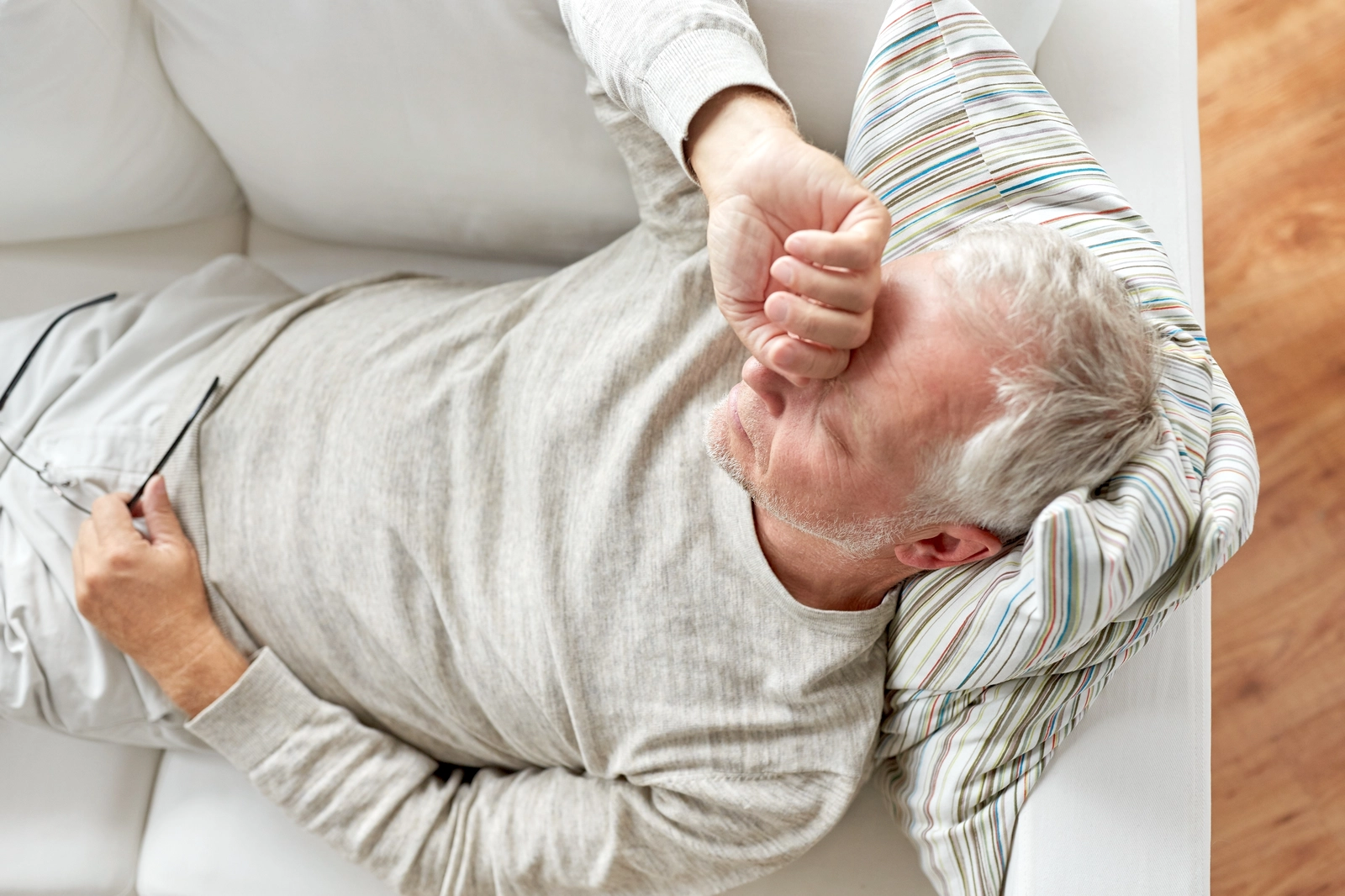Does Gabapentin Cause Constipation? Side Effects and Risks

What you will learn
- Gabapentin is a prescription anticonvulsant medication that’s used to treat seizure disorders and nerve pain.
- Gabapentin has some common side effects, including drowsiness, dizziness, and swelling of the extremities.
- Constipation can be a rare side effect of gabapentin, but more likely side effects of gabapentin include gastrointestinal symptoms like nausea, vomiting, and diarrhea.
Gabapentin is a prescription drug used to treat seizures and nerve pain, such as post-herpetic neuralgia from shingles. It may be used off-label to treat other conditions, including diabetic nerve pain, anxiety, and alcohol use disorder.
Though gabapentin is usually safe and well-tolerated, it can have side effects like nausea, vomiting, and drowsiness. Constipation is a rare side effect, but it can occur.
What Is Gabapentin?
Gabapentin is a prescription anticonvulsant medication sold under the brand Neurontin. It was developed to treat epilepsy, a type of seizure disorder, but it’s also used to treat nerve pain, anxiety, restless legs syndrome, bipolar disorder, and postherpetic nerve pain. Extended-release (ER) tablets Horizant and Gralise treat postherpetic neuralgia and restless legs syndrome.
While gabapentin’s mechanism of action isn’t well understood, the drug is believed to modulate neurotransmitters that are necessary for communication between nerve cells and influence electrical activity in the brain.[1] Gabapentin has a similar structure to gamma-aminobutyric acid (GABA), which can reduce the excitability of the nerve cells to calm seizure activity and nerve-related pain.
Common Side Effects of Gabapentin
Gabapentin has several common side effects, including:[2]
- Sore throat
- Chills
- Fever
- Body aches
- Tiredness
- Swelling in the legs and feet
- Headache
- Vision problems
- Dizziness
- Drowsiness
- Tremors or balance problems
- Nausea
- Vomiting
Gabapentin has some serious side effects, including severe drowsiness and dizziness that affect daily life, weakness, increased seizure activity, and muscle or balance problems.[3] Sudden changes in mood or behavior are possible, including anxiety, depression, panic, and thoughts of suicide or self-harm.
Does Gabapentin Cause Constipation?
Gabapentin can cause constipation, but it’s rare. In research studies of adults taking gabapentin for nerve pain, about 4% of people reported constipation.[4] In the placebo group, about 2% of them reported constipation.[5]
Diarrhea is a more common gabapentin gastrointestinal side effect than constipation, though it doesn’t happen often. The most common gastrointestinal side effects are nausea and vomiting, but taking gabapentin with food can help relieve these effects.
What Are the Most Common Gabapentin Side Effects in Studies?

In clinical trials of gabapentin to treat nerve pain in adults, the most common side effects were drowsiness, dizziness, and swelling in the hands or feet (peripheral edema).[8] In clinical trials of people older than 12 taking gabapentin to treat a seizure disorder, the most common side effects were sleepiness and clumsiness (ataxia).[9]
About 1 in 500 people experienced suicidal thoughts or thoughts of death while taking gabapentin.[10] This can happen shortly after taking gabapentin and may increase the risk of suicidal actions.
How to Relieve Gabapentin Side Effects
Gabapentin’s side effects are often milder than the symptoms of the condition it treats. However, if you experience significant or disruptive side effects with gabapentin, discuss your options with your doctor. Some side effects may improve once you get used to the drug, but serious side effects like worsening depression, suicidal thoughts or actions, or sudden mood changes can be dangerous.
If you have a serious drug reaction with symptoms like swollen glands, skin rash, fever, muscle aches, unusual bruising, severe weakness, or yellowing of the skin or eyes, seek emergency medical attention.
Gabapentin shouldn’t be combined with other central nervous system (CNS) depressants, such as benzodiazepines, alcohol, or opioids, as they can compound the sedative effects and lead to life-threatening respiratory depression.
If you experience GI side effects like nausea, vomiting, or diarrhea, your body may take time to adjust to the drug. Some people benefit from a bland diet with starchy foods like dry toast to relieve GI symptoms while the body adjusts, but it’s possible to become constipated from long periods on this diet.
If you have constipation from gabapentin, here are some options to relieve your symptoms:
- Take an OTC laxative, either stimulant or osmotic form, to promote a bowel movement.
- Eat more fiber-rich foods like fruits and leafy green vegetables.
- Try a fiber supplement like psyllium fiber. Increase your fiber intake slowly to avoid bloating and gas.
- Drink lots of water to stay hydrated and promote regularity.
- Exercise daily to get your bowels moving.
- If you still struggle with constipation, talk to your doctor.
Gabapentin Withdrawal
You shouldn’t stop taking gabapentin, even if you experience uncomfortable side effects like constipation. Gabapentin builds dependence over time, so your body becomes accustomed to the drug and needs it to function. If you stop taking it suddenly, you can experience withdrawal symptoms like nausea, vomiting, agitation, anxiety, or life-threatening seizures.[11]
If you want to stop taking gabapentin or reduce your dose, talk to your doctor. They can offer a taper schedule to gradually reduce your dose and minimize withdrawal symptoms while your body adjusts to its absence.
Understand Gabapentin Side Effects
Gabapentin has some common and rare side effects, some of which can be serious, but constipation isn’t usually one of them. Drowsiness, dizziness, swelling in the legs and feet, and nausea or vomiting are more likely, but it is possible to experience constipation while taking this drug. If you have any concerning side effects while on gabapentin, talk to your doctor.
Ready to get help for you or a loved one? Contact us
To ensure accuracy and quality, every contributor to the Alpas Wellness resource library undergoes a thorough evaluation of their experience, credentials, and achievements prior to publication.
Frequently Asked Questions About Gabapentin and Constipation
What’s the Most Common Side Effect on Gabapentin?
Drowsiness and dizziness are the most common side effects for gabapentin. It’s possible to experience other side effects, however, including dangerous side effects like suicidal ideation or severe allergic reaction. Tell your doctor about any side effects you’re experiencing.
Does Gabapentin Cause Weight Gain?
Gabapentin can cause weight gain, but it’s a rare side effect. A small number of people may gain about 5 pounds after about 6 weeks of use.
Does Gabapentin Cause Constipation?
Generally, no, gabapentin doesn’t have constipation as a common side effect. It is possible, though. Some drugs that are used with gabapentin as part of the treatment protocol, such as opioids, do have constipation as a side effect.
Can I Eat Normally While Taking Gabapentin?
There are no dietary restrictions for gabapentin, so you should be able to eat and drink normally. However, GI symptoms like nausea, vomiting, diarrhea, or constipation may require some diet changes, such as eating a bland diet, to see if they can be relieved.
[1] NHS. (n.d.). NHS choices. Retrieved from https://www.nhs.uk/medicines/gabapentin/about-gabapentin/ on 2024, December 6.
[2,3] Gabapentin: Uses, dosage, side effects, warnings. Drugs.com. (n.d.-b). Retrieved from https://www.drugs.com/gabapentin.html#side-effects on 2024, December 6.
[4,5,6,7,8,9,10] Does Gabapentin cause constipation?. Drugs.com. (n.d.-a). Retrieved from https://www.drugs.com/medical-answers/gabapentin-constipation-3557482/ on 2024, December 6.
[11] Gabapentin withdrawal: Case report in an older adult and review of the literature – mah – 2013 – journal of the American Geriatrics Society – Wiley Online Library. (n.d.-b). Retrieved from https://agsjournals.onlinelibrary.wiley.com/doi/full/10.1111/jgs.12427 on 2024, December 6.